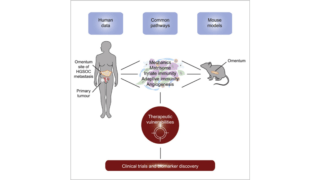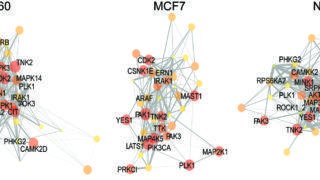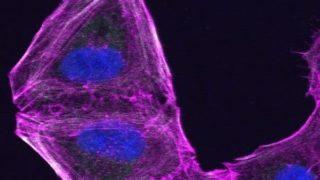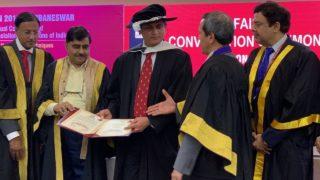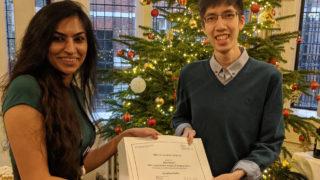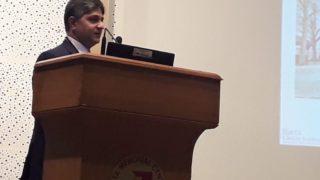Category: General News
Search News
Categories
Archives
Mouse models of ovarian cancer
27th January 2020
Research led by the Barts Cancer Institute, Queen Mary University of London, has revealed that mouse models of the most common and deadly form of ovarian cancer, high-grade serous ovarian cancer, can effectively replicate the disease in humans. These models provide useful pre-clinical tools that may help to determine which patients are likely to respond to particular treatments.
Read moreProtein network rewiring in cancer
20th January 2020
Research published in Nature Biotechnology has identified new ways to analyse the complexity of the internal workings of normal cells and cancer cells. The study highlights how genetic changes rewire the biochemistry of cancer cells and may aid in identifying new drug targets specific for a patient’s disease.
Read moreTackling resistance in skin cancer
13th January 2020
Researchers have found that melanoma cells fight anti-cancer drugs by changing their internal skeleton (cytoskeleton) – opening up a new therapeutic route for combating skin and other cancers that develop resistance to treatment.
Read moreProf Patel awarded Honorary Fellowship
23rd December 2019
Congratulations to Prof Bijendra Patel who was awarded the Honorary Fellowship of the Association of Surgeons of India in recognition of his outstanding contribution to surgery and surgical education.
Read moreThe Class of 2019
20th December 2019
The hard work of the students enrolled on the Postgraduate Taught Courses and PhD studentships here at the Barts Cancer Institute paid off yesterday (19th December) when they graduated at the Queen Mary University of London, School of Medicine and Dentistry Winter Graduation Ceremony.
Read moreProf Manchanda awarded prestigious oration
16th December 2019
Professor Ranjit Manchanda delivered the Shyam Agarwal Memorial Oration at the Indian Society of Cancer Genetics Conference on 15 December.
Read more
